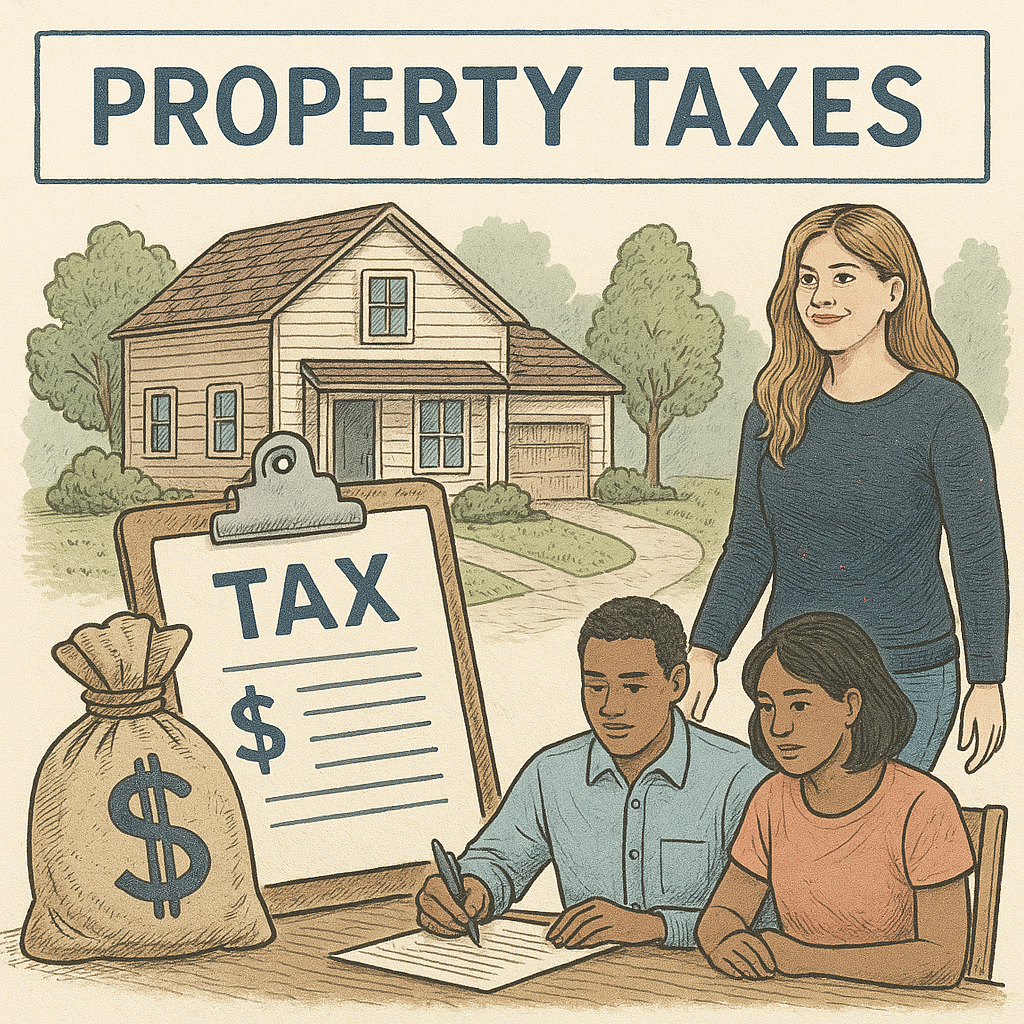HOME BUYING GUIDE: PROPERTY TAXES
Understanding property taxes is a critical part of the home buying process.
The Sacramento area's tax landscape can influence affordability and long-term financial planning for prospective homeowners.

Understanding property taxes is a key part of buying a home in Sacramento, impacting affordability and long-term planning. The tax rate is roughly 1.20% of the assessed value, capped under California's Proposition 13. Help is available for specific groups, and tools like escrow accounts aid in managing payments.
Staying informed about local tax laws and exemptions can enhance financial strategy and home-buying decisions.
- 📉 Sacramento's property tax rate is approximately 1.20%, slightly below the state median.
- 🛡️ Proposition 13 caps annual property tax increases at 2% unless there's a sale or new construction.
- 🔍 Property taxes are based on assessed value, not market value, affecting tax obligations.
- 📅 Property tax payments are usually split into two installments, due in December and April.
- 🏦 Escrow accounts help manage tax payments by including them in mortgage payments.
- 🏠 Proposition 19 assists seniors and disabled individuals to transfer property tax assessments statewide.
- ✂️ The Homeowners' Exemption provides a $7,000 reduction in taxable value for principal residences.
The median property tax rate in Sacramento is approximately 1.20%, slightly below the state median of 1.21% but above the national median. This rate applies to the assessed value, not the market value, of a property due to California's Proposition 13 legislation. Under Proposition 13, property tax increases are capped at 2% annually unless a property is sold or new construction occurs.
For more detailed information, you can visit Sacramento County's property tax page via their official website. Understanding variations in local tax rates can help buyers make informed decisions about affordability and budgeting.
Property taxes in Sacramento are calculated based on a property's assessed value, which can change with market conditions but is limited by law for stability. Assessments are typically adjusted annually, but Proposition 13 caps increases to help control tax inflation. Homebuyers should be aware that purchasing a home or making significant renovations triggers a reassessment to the current market value.
Awareness of the difference between market and assessed values can aid in financial planning, as it affects your tax obligation considerably. Visit the California State Board of Equalization's website for more on how property values are assessed in the state.
In a real estate transaction, property taxes are prorated between the buyer and the seller based on the closing date. The annual tax bill is divided into two installments, with due dates typically set for December and April. Buyers must be mindful of these due dates to avoid late penalties and ensure seamless escrow processing.
Utilize financial tools or consult professionals to better manage property tax expenses and incorporate them into your home-buying budget. This will ensure you're financially prepared to handle these obligations when they arise.
Many homebuyers opt to include property taxes in their monthly mortgage payments through an escrow account. This setup allows lenders to manage tax payments, ensuring they are made on time from the accumulated funds. Not everyone is required to have an escrow account, but it is a common requirement for those with government-backed loans or less than 20% down payment.
Escrow accounts simplify the budgeting process and help prevent missed payments, providing peace of mind for homeowners managing multiple expenses. For homeowners capable of advanced financial management, opting out of escrow may offer more control over larger annual lump-sum payments.
Proposition 19, passed in 2020, is a significant development in California property tax regulation. It allows eligible homeowners, particularly seniors over 55 and disabled individuals, to transfer their low property assessment to a new residence statewide. However, it limits the ability for children to inherit their parents' property tax base unless they use the property as their primary residence.
This legislation can affect estate planning and market dynamics, altering incentives for homeownership transitions. For more information on Proposition 19 and how it might impact your property tax situation, visit San Francisco's official Proposition 19 page.
California offers a Homeowners' Exemption for owner-occupied homes, granting a $7,000 reduction in taxable value. This usually results in an annual tax saving between $70 and $80. To qualify, you must occupy the property as your primary residence and file the necessary forms with your county assessor by the prescribed deadlines.
Further exemptions may be available, such as for disabled veterans, potentially offering significant tax relief. Understanding and applying for these benefits can result in considerable savings and enhanced affordability. For detailed information and application guidance, check with your local county assessor or visit the California State Board of Equalization's website.